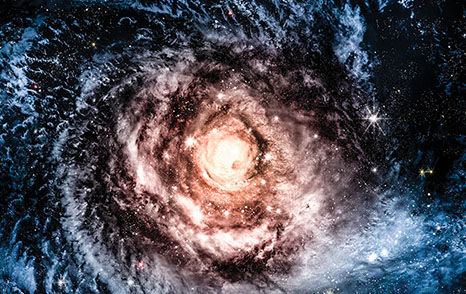God doesn’t do ugly.
That is just one of the aspects of God’s personality that Brother Guy Consolmagno, astronomer and president of the Vatican Observatory, said he’s learned from studying astronomy. He has seen hundreds of images of space from the Hubble Space Telescope, and they’re all beautiful.
“God not only makes a universe that is rational and full of laws, but at the same time also beautiful,” Brother Consolmagno said. “Rational I could explain, but the fact that it’s beautiful is special.”
In a few weeks, Brother Consolmagno will give a lecture at an event entitled “Science, Religion and the Art of Storytelling” for Loyola Marymount University’s new Academy of Catholic Thought and Imagination. The event will help explain how science and religion are interconnected, and how they both use stories to convey information, Brother Consolmagno said.
“I think much of the confusion that people have about the perceived conflict (between science and religion) is that they’ve got a funny idea of what science is. They think science is a big book of facts. Or they’ve got a funny idea of what religion is: they think religion is a big book of rules,” Brother Consolmagno observed.
These perceptions of science and religion sell them both short, he said, because they both go far beyond that. They are each conversations with the world that must be done as a community, rather than as an isolated activity.
“You can’t do science in your basement,” Brother Consolmagno said. “At the end of the day, even if you make some fabulous discovery in your basement … you still have to tell people about it. So even though there may be times when I’m alone … I couldn’t do that work without the community, without telling the story of what it is I did and why I did it.”
Most of the time scientists actually work as a team anyway, he noted, and they have to communicate with each other to make any progress. Similarly, religion is also not confined to the individual experience.
“OK, you’re maybe alone in the Church praying, but you didn’t build the church, you didn’t write the scriptures, you’re not the one who created the liturgy,” he said. “Religion really is done as a part of a community.”
When asked about the widespread perception that science and religion are mutually exclusive, Brother Consolmagno said he’s had to work very hard to understand why so many people seem to think that the two conflict, because he never saw the world that way in his own experience.
“In my life, science and religion complement each other so constantly that it really took an effort on my part to understand why anyone else would think they were (opposed to each other),” he said.
God created the physical universe, and so it always made sense to Brother Consolmagno that God would use creation, along with Scripture and tradition, to speak to his people.
“Since the beginning of time, God expresses himself in the things that he’s made,” Brother Consolmagno said. “That’s not me, that’s St. Paul, it’s in his letter to the Romans. So if you want to pay attention to God, you have to pay attention to all the ways God speaks to us.”
Man can learn about God’s personality through creation, Brother Consolmagno said, and what he’s noticed in his studies is that God has a love for beautiful things and takes delight in his creation.
“God makes wonderfully complex results out of very simple laws, and that seems to be a trick that he plays over and over again,” he said. “And I think there’s a sense of delight in the universe. God loves this universe, God’s having fun in this universe, and he wants us to enjoy it and to share in the fun.”
Science does have its limits, Brother Consolmagno noted. Astrology, for example, is an abuse of the science of astronomy.
“(Scripture) condemns astrology,” he said, “because astrology denies the power of God, denies the freedom of God, and it denies the freedom of human beings. It tries to predict by assuming that we know certain things.”
Brother Consolmagno said that while astrology has been thoroughly debunked by scientists over the last hundred years, he still sees abuse in the scientific world today, particularly when it comes to genetics.
“Genetics is a real science, and it does a good job of explaining why your eyes are brown,” he said. “But when people try to use genetics to determine who’s going to be a criminal and who’s going to be a saint … that’s just like astrology.
“It takes what is a nice little bit of observational science, and abuses it to try to get power over yourself or power over other people,” he added. “Even if it were true, it would be wrong, and as it happens, it’s not true.”
